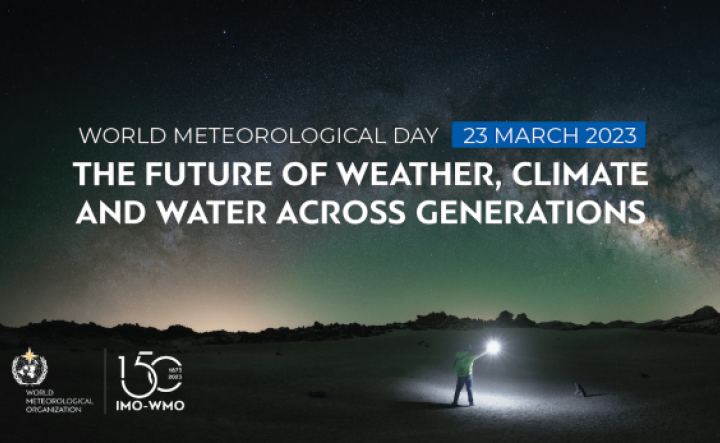The future of the weather conditions, climate and water through generations
We live on a planet on which everything is interconnected. We share the Earth that has an atmosphere and a global ocean.
Our weather, climate and water cycle knows no national or political boundaries. International cooperation has a particular importance here. This philosophy has initiated the activities of the world meteorological community since 1873 and will be the guide for translating science into services that society needs for present and future generations.
World Meteorological day, 2023 is being held during the 150th anniversary of the World Meteorological Organization. The emphasis is on past achievements, current development and future potential – from the appearance of telegrams at the end of the 19th century and forecasts intended for marine traffic, up to supercomputers and the development of space technology.

Through the years, The National Meteorological and Hydrological Services have been working continuously to collect and standardize the data that underpins the weather forecast today that we take as “for granted”. The history of data exchange at the World Meteorological Organization writes an extraordinary story of scientific vision, technological development and above all a unique system of cooperation that aims to serve the society.
This anniversary, also serves as a reminder of climate changes. The International Meteorological Organization – a predecessor organization to the World Meteorological Organization – was founded in 1873 at a time when pollution from industrial and human activities were just beginning.
As a result of heat-trapping greenhouse gases, the average global temperature is now 1ᴼ Celsius higher than it was 150 years ago. Our meteorological conditions are more extreme, our global ocean is warmer and more acidic, sea level is higher, glaciers and ice are melting too. Changes are happening at a faster rate. Urgent action is needed to reduce emissions and ensure the survival of both future generations and our planet.
The good news is that with rapid scientific and technological progress the accuracy of weather forecasts and life-saving early warnings is greatly increased. Extensive data is exchanged freely in the wider community than ever before, and new tools including machine learning and artificial intelligence (AI) are available.
Significant progress has been achieved to monitor, simulate and plan global climate conditions to support the decision–making process.
Our meteorological, climate and hydrological cycle will be different in the future compared to that of the past. Time, climate and hydrological services will help us to cope with the appropriate challenges and take advantage of opportunities.
